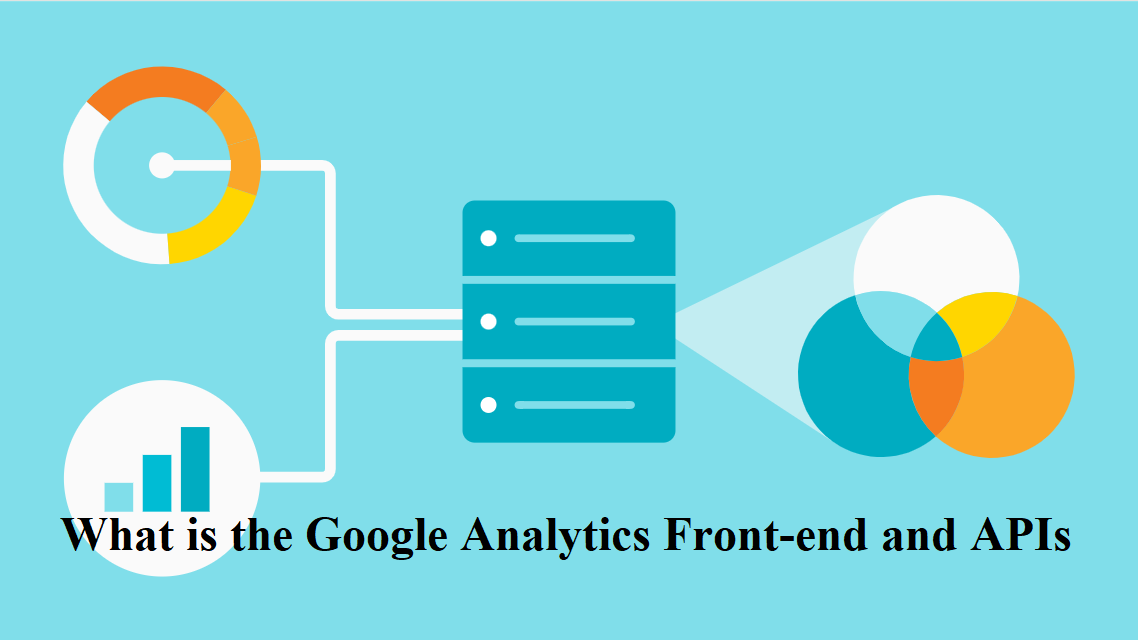
The Google Analytics Embed API is a front-end library for embedding dashboards, while the Google Analytics API allows programmatic access to data on the back-end. Both require authentication but there are ways to show data to users without requiring them to log in. It provides a set of pluggable components to build complex tools, making it both simple and powerful.
Key Features of the Embed API include
- A one-click Google Analytics sign-in button
- A built-in view (profile) selector
- Integration with Google charts
Why the Google Analytics is Used
The Google Analytics front-end and APIs are critical for website owners and digital marketers to gain data-driven insights that inform business decisions and improve online performance across various channels and campaigns.
-
Website Traffic Analysis
Google Analytics provides detailed information about the number of visitors to a website, how they arrived at the site, and what pages they viewed.
-
User Behavior Analysis
It can track user behavior on a website, including how long they stayed, what pages they visited, and what actions they took.
-
Conversion Tracking
Google Analytics allows you to track website conversions, such as form submissions, purchases, and other important actions.
-
Campaign Tracking
It can track the effectiveness of marketing campaigns, including email, social media, and other digital marketing efforts.
-
Custom Reporting
Google Analytics allows users to create custom reports and dashboards to track specific metrics and KPIs that are important to their business.
-
Audience Insights
It provides demographic and interest-based data about website visitors to help guide marketing strategies and content development.
-
Free and Easy to Use
Google Analytics is a free tool that is relatively straightforward for even non-technical users to set up and leverage.
How can Google Analytics Help in Improving Website Conversions
By leveraging the insights and capabilities of Google Analytics, you can make data-driven decisions to optimize your website, enhance the user experience, and ultimately drive more conversions and business growth. The key ways Google Analytics can help improve website conversions:
-
Identify High-Converting Pages and Content
Google Analytics allows you to see which pages on your website have the highest conversion rates. This helps you identify the content and experiences that are most effective at driving conversions. You can then optimize these high-performing pages to further improve their conversion rates.
-
Analyze User Behavior
Google Analytics provides detailed data on how users interact with your website, including their navigation paths, time on page, and actions taken. This behavioral data can reveal friction points, confusing user flows, and opportunities to improve the conversion funnel. By understanding user behavior, you can make data-driven decisions to enhance the user experience and increase conversions.
-
Track Conversion Funnels
Google Analytics lets you set up conversion funnels to visualize and analyze the steps users take to complete a desired action. This allows you to identify where users are dropping off in the conversion process and address any issues. You can then optimize the funnel to guide users more effectively towards conversion.
-
Segment and Analyze Audience Data
Google Analytics provides demographic, interest, and behavioral data about your website visitors. You can use this audience data to create targeted campaigns and personalized experiences for different user segments. By understanding your audience, you can tailor your content and messaging to better resonate with potential customers and drive more conversions.
-
Measure and Attribute Conversions
Google Analytics allows you to track conversions and attribute them to various marketing channels and campaigns. This helps you understand which marketing efforts are most effective at driving conversions, so you can allocate resources accordingly. Accurate conversion tracking and attribution are crucial for optimizing your marketing strategy and improving overall website performance.
-
Experiment and Test Improvements
Google Analytics integrates with Google Optimize, enabling you to run A/B tests and experiments on your website. You can test different page designs, content, and user flows to determine the most effective approaches for increasing conversions. Data-driven experimentation allows you to continuously improve your website and conversion rates. By leveraging the insights and capabilities of Google Analytics, you can make data-driven decisions to optimize your website, enhance the user experience, and ultimately drive more conversions and business growth.

